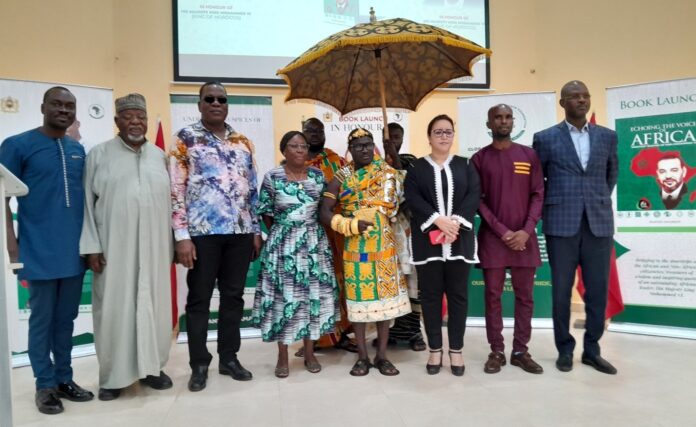
The Ambassador of Morocco to Ghana, Imane Ouaadil, has emphasised the Morocco-Nigeria gas pipeline’s significance – describing it as a major project that intersects strategic, economic and geopolitical interests of the sub-region.
The project spans over 7,000 kilometres, intending to transport more than 8 billion cubic metres of natural gas. This initiative promises to revolutionise energy production and accessibility in the 11 countries it traverses, while also playing a crucial role in securing the global energy future.
According to Ambassador Ouaadil, the Morocco-Nigeria gas pipeline is not just a conduit for natural gas but also a transformative force in Africa’s socio-economic landscape.
She highlighted that this strategic project aligns with Morocco’s longstanding foreign policy, which emphasises fostering South-South cooperation.
Morocco, she noted, firmly believes that the country’s development depends on development of the entire continent. Therefore, initiatives like the African Continental Free Trade Area (AfCFTA) are crucial for achieving regional economic integration.
“Effective operationalisation of the AfCFTA is a crucial step toward achieving the continent’s regional economic integration,” she said.
Ambassador Ouaadil was speaking as chairperson during the launch of a book, ‘Echoing the Voice of Africa’ to honour the king of Morocco – Mohammed VI, and also emphasised that the monarch recently urged an upgrade of Morocco’s Atlantic coast. This, she added, highlights the Atlantic coast’s importance in terms of human interaction and economic integration at the continental level.
She stated: “The new Dakhla Atlantic port, a US$3.3billion project, and the Tiznit-Dakhla highway are the crown jewels of Morocco’s socio-economic development strategy for the southern provinces, as they are expected to contribute to the development of African regional trade and economic integration”.
She said Morocco’s African policy, guided by the king, aims to create a model of cooperation that fosters resilience in sister-African nations through economic integration, continental solidarity and shared responsibility.
Ambassador Ouaadil disclosed that Foreign Direct Investment (FDI) from Morocco into Africa has surged from US$100million in 2014 to over US$800million in 2021, with 43 percent of its total FDI directed toward the continent.
This places Morocco as the second-largest African investor – trailing only South Africa – and leading investor in West Africa, she observed.
‘Echoing the Voice of Africa’ was authored by Peter Panyin Anaman, and is a series that inspires Africans to appreciate their heritage and embrace the wisdom of African leaders – particularly King Mohammed VI.
The book invites readers to explore the king’s inspiring quotes on preserving African heritage, fostering interfaith harmony and promoting African values like tolerance, patriotism and pan-Africanism.
In his remarks at the launch, Peter Panyin Anaman said the book was inspired by the king’s speeches, which reflect his dedication, vision and love for Africa.
He said throughout his life he has noticed a common tendency among many Africans – including respected scholars and intellectuals – frequently quoting foreign leaders, philosophers and heroes, while neglecting to reference the wisdom and teachings of African ancestors and elders.
“This often results in a lack of appreciation for the valuable knowledge and insights that can be gained from our own cultural heritage,” he said.
He asserted that: “The only voice that can inspire us as Africans to embrace our Africa, is our own, wise inspiring African voice. The only voice that can inspire us to build the better Africa we want is our own inspiring, wise African voice. The only voice that can guide Africa to the path of sustainable emancipation is our own commanding pan-African voice”.
Among other things, he explained that it was in response to the need for Africans to “guard and take pride in our voices, and preserve our precious indigenous wisdom and legacy that I wrote the series of books”.
Alongside these books, he said he has also established the Global African Heritage Foundation. “Our aim is to research, document, preserve, and promote the intangible African heritage, so that it will continue to serve as an inspiring and reliable frame of reference for current and future generations.”
The book was launched by Founder of the Pan-African Heritage Museum and President of the African University College of Communications (AUCC), Prof. Kojo Acquah Yankah.
The book’s first copies were bought at various prices by dignitaries and guests at its launch.









